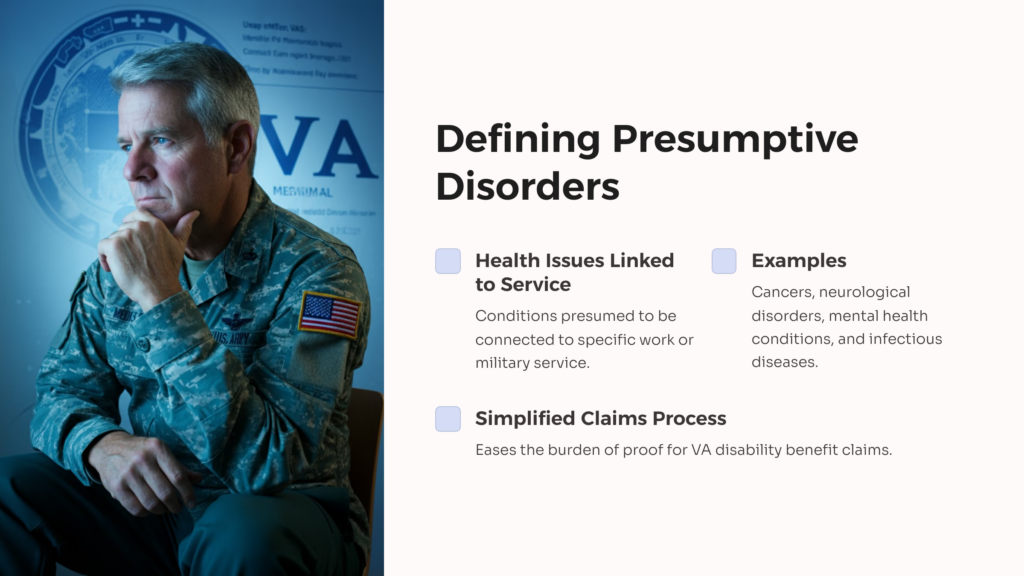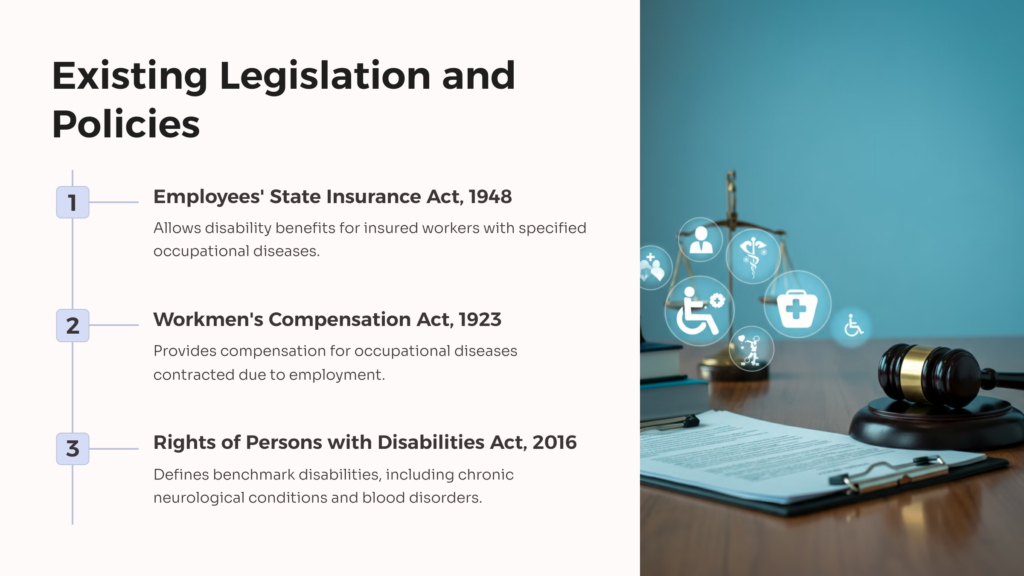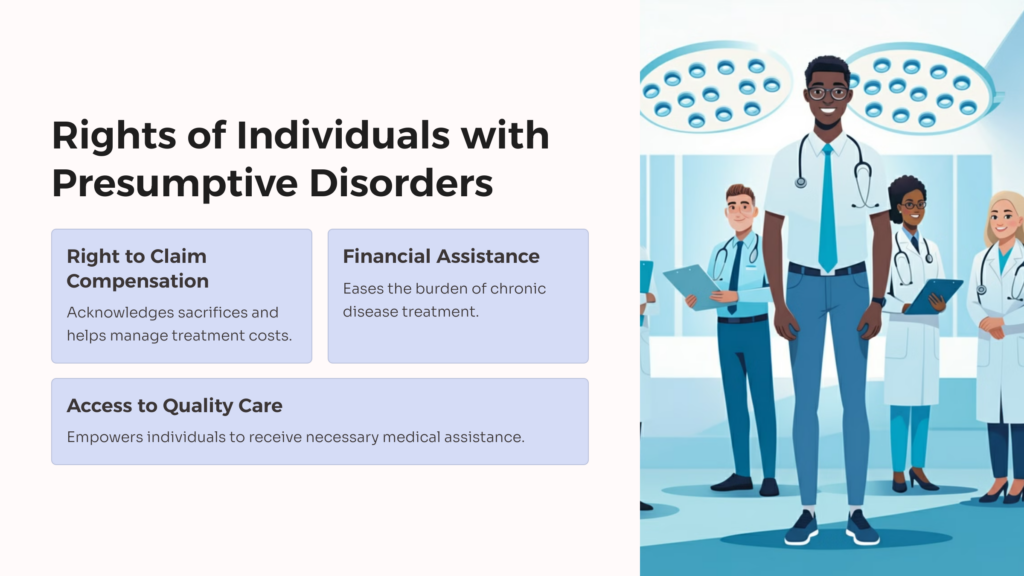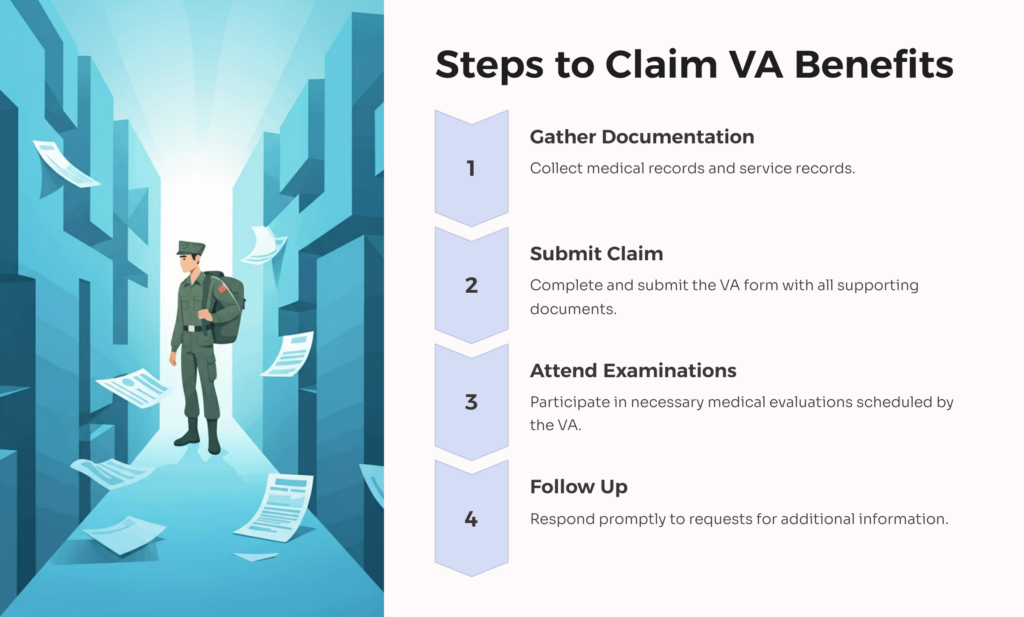Presumptive disorders are health conditions assumed to be caused by a specific event, exposure, or environment related to an individual’s occupation or military service. They carry significant implications, particularly for United States veterans who may be seeking compensation for health issues related to their service. Presumptive disorders ease the process of claiming VA disability benefits as the burden of proof is largely lifted from the claimant, simplifying the oftentimes complex and burdensome process of establishing a direct service connection for a VA disability claim.
Understanding Presumptive Disorders

A presumptive condition, by definition, is a health issue presumed to be connected to an individual’s specific work or service. For example, in the context of military veterans, certain types of cancers, neurological disorders, mental health conditions, and infectious diseases can all be classified as a presumptive disability if the veteran had been in specific geographical regions or exposed to certain hazardous substances during their military service, including Gulf War veterans and Vietnam veterans.
Causes and Impacts
Presumptive diseases can be caused by a variety of factors. In some cases, toxic exposure, such as to asbestos or Agent Orange during military service, might result in a range of health conditions, including mesothelioma or various types of cancer. Additionally, severe and prolonged stressors can lead to mental health disorders like Post-Traumatic Stress Disorder (PTSD). These presumptive conditions can have significant health impacts, limit quality of life, and create substantial economic and social burdens, not only for the individuals suffering from these conditions but also for their families and society at large.
Existing Legislations and Policies On Presumptive Disorders

Understanding The Laws
There are a few key legislations and policies related to presumptive disorders in India. The Employees’ State Insurance (ESI) Act, 1948 allows for disability benefits for insured workers suffering from occupational presumptive diseases specified in the Act’s Schedule III. This schedule lists presumptive conditions like silicosis, asbestosis, and more that are presumed to be occupational if diagnosed in a worker after certain minimum periods of toxic exposure.
The Workmen’s Compensation Act, 1923 also provides for compensation for occupational diseases contracted due to employment. Additionally, the Rights of Persons with Disabilities Act, 2016 defines a set of benchmark disabilities which includes chronic neurological conditions, blood disorders, and muscular dystrophies that are presumed to cause disability.
Government policies allow disability benefits like Social Security disability benefits or VA disability compensation on a presumptive basis if a person is diagnosed with one of these specified conditions, without needing to further establish disability. However, the legislation related to presumptive disability requires further strengthening for improved disability compensation coverage and benefits.
Rights of Individuals With Presumptive Disorders

People suffering from a presumptive condition possess certain rights, primarily the right to claim compensation or benefits. This right aims to acknowledge the sacrifices of the individuals and help them manage the costs of their health treatment and care necessities. Such rights can help ease the financial burden associated with chronic disease treatment, enhancing the individual’s capability to access quality care services.
Recognizing these rights legally empowers afflicted individuals to receive the medical and financial assistance they critically need. Compensating victims requires collective social responsibility and ethical state welfare policies that guarantee fundamental patient rights. Overall, presumptive rights legitimize and facilitate access to requisite health provisions for managing debilitating illnesses.
Claiming VA Benefits for Presumptive Disorders
Eligibility Criteria For Claiming Benefits
The eligibility criteria for claiming VA disability benefits for presumptive disorders usually include documentation verifying the individual’s exposure to a specific environment or event associated with the disorder. For veterans, this could mean providing military service records that confirm a service connection to areas where hazardous materials or active duty combat situations were present.
Understanding the precise eligibility criteria set forth by the governing agency is crucial, as there may be strict time limitations imposed both for the exposure event itself as well as for the subsequent onset of illness related to that event. VA health care benefit claimants should thoroughly research the requirements for VA benefits before applying in order to present the strongest case possible.
Steps To Claim Benefits

Claiming VA disability compensation for presumptive disorders involves several steps:
- Gather all relevant documentation, such as medical records and service records, that attest to your condition and its relation to an event or exposure during your active duty.
- Complete and submit the benefits claim VA form to your nearest Veterans Affairs office. Be sure to fully complete all sections and include all pertinent information to help expedite the review process.
- Attach copies of all supporting documents to the VA form, including medical records, service records, medical opinions linking your condition to service, and lay statements from others familiar with your health history and symptoms.
- Attend all necessary medical examinations or evaluations scheduled by the VA. These are used to evaluate and validate your presumptive condition as part of the VA disability claim process.
- Respond in a timely manner to any requests for additional evidence or clarification on your claim. Prompt attention to these requests can help avoid unnecessary delays.
- Consider consulting with an accredited veterans disability service organization for guidance in preparing and submitting documentation for your claim. Their assistance can be invaluable for ensuring your claim is complete.
Potential Challenges
Despite streamlined processes for presumptive disorders, potential challenges can still arise. Bureaucratic red tape, delayed responses, and lack of awareness can hamper the claiming process. To overcome these challenges, staying organized, following up regularly, and seeking guidance from those who have successfully navigated the process can be beneficial.
Conclusion
Understanding presumptive disorders and knowing how to claim the veterans disability benefits associated with them is essential, especially for those directly affected. Staying informed about the laws and rights related to these disorders can alleviate some of the burdens associated with them. Be proactive and spread awareness in your community to ensure that individuals with presumptive disorders receive the support they need.
 AllVeteran.com Advisors
AllVeteran.com Advisors
With expertise spanning local, state, and federal benefit programs, our team is dedicated to guiding individuals towards the perfect program tailored to their unique circumstances.


















